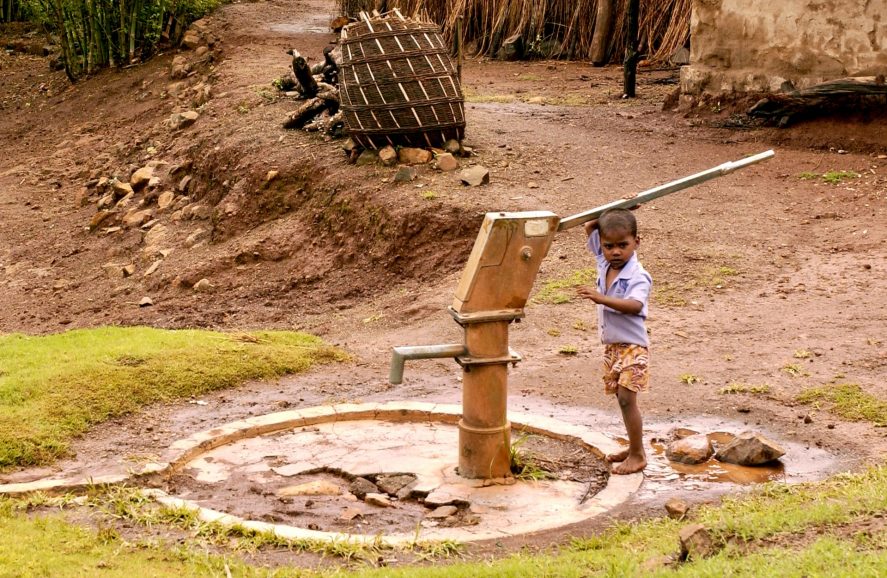2020-21 Annual Report: Clean Water Is Key to Nutrition

This article originally appeared in TCI’s 2020-21 Annual Report. Download the report (PDF) to read more.
Providing people with access to affordable, nutritious food is only one step in improving nutrition outcomes. In countries like India, where the majority of people lack access to piped water in the home, waterborne diseases often interfere with people’s ability to absorb nutrients from the food they eat.
TCI is working to improve access to clean drinking water in rural India. Led by TCI alumna Shiuli Vanaja, TCI research examines how rural Indians choose water sources and the impact of piped water in the home.
Using data that she collected in 30 villages from two districts of Jharkhand, Vanaja’s research shows that when objective information about water quality is lacking, perceptions of quality based on the color and taste play a significant role in the choice of a water source. Households in her study were willing to pay, on average, $4–$68 per month for improvements to perceived quality based on taste and $2–$40 per month for improvements based on the color of the water.
[D]evelopment projects aimed at providing clean water must account for people’s perceptions of water quality and promote good hygiene practices like handwashing.
Vanaja also found that while choosing safe water sources improves the quality of water that a household consumes, contamination can still happen at home. Households that use water filters and practice frequent handwashing have significantly better water quality and are at a lower risk of diarrhea.
In addition to her study of water sources and quality, Vanaja conducted a yearlong field survey to measure the time spent in water collection across seasons. The survey included six villages, three of which were provided with solar-powered, piped-water systems from TCI partner AguaClara. She found that households with piped water saved roughly 60 minutes per day on water collection, which increased the time women spent in their primary occupation by 20 percent per day.
This research reveals that providing access to clean drinking water can have important effects beyond nutrition and general health, but that development projects aimed at providing clean water must account for people’s perceptions of water quality and promote good hygiene practices like handwashing.





